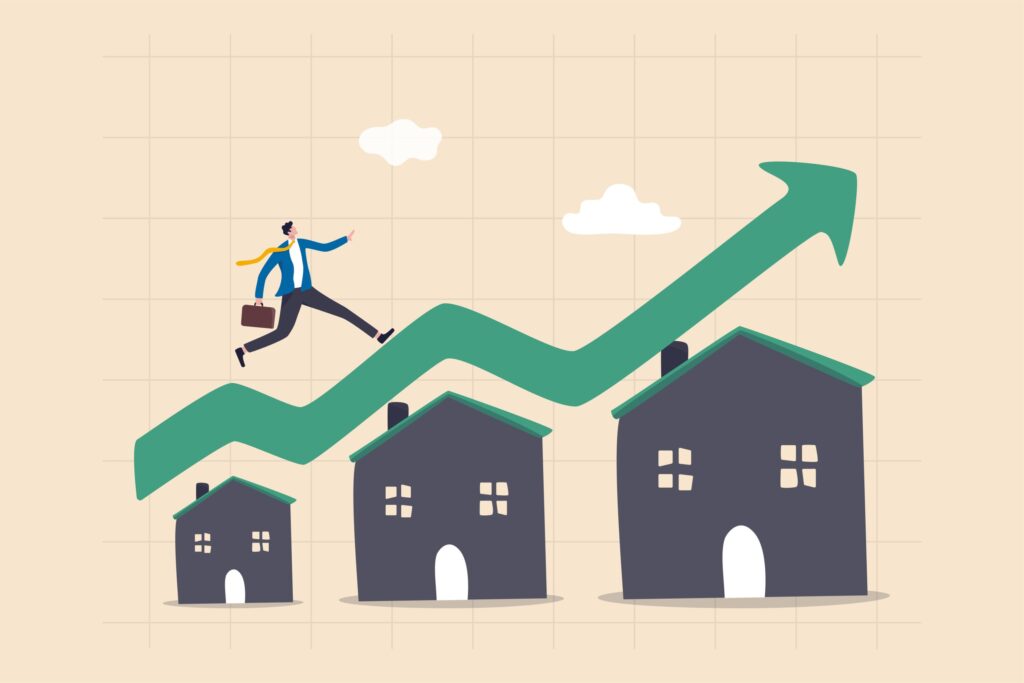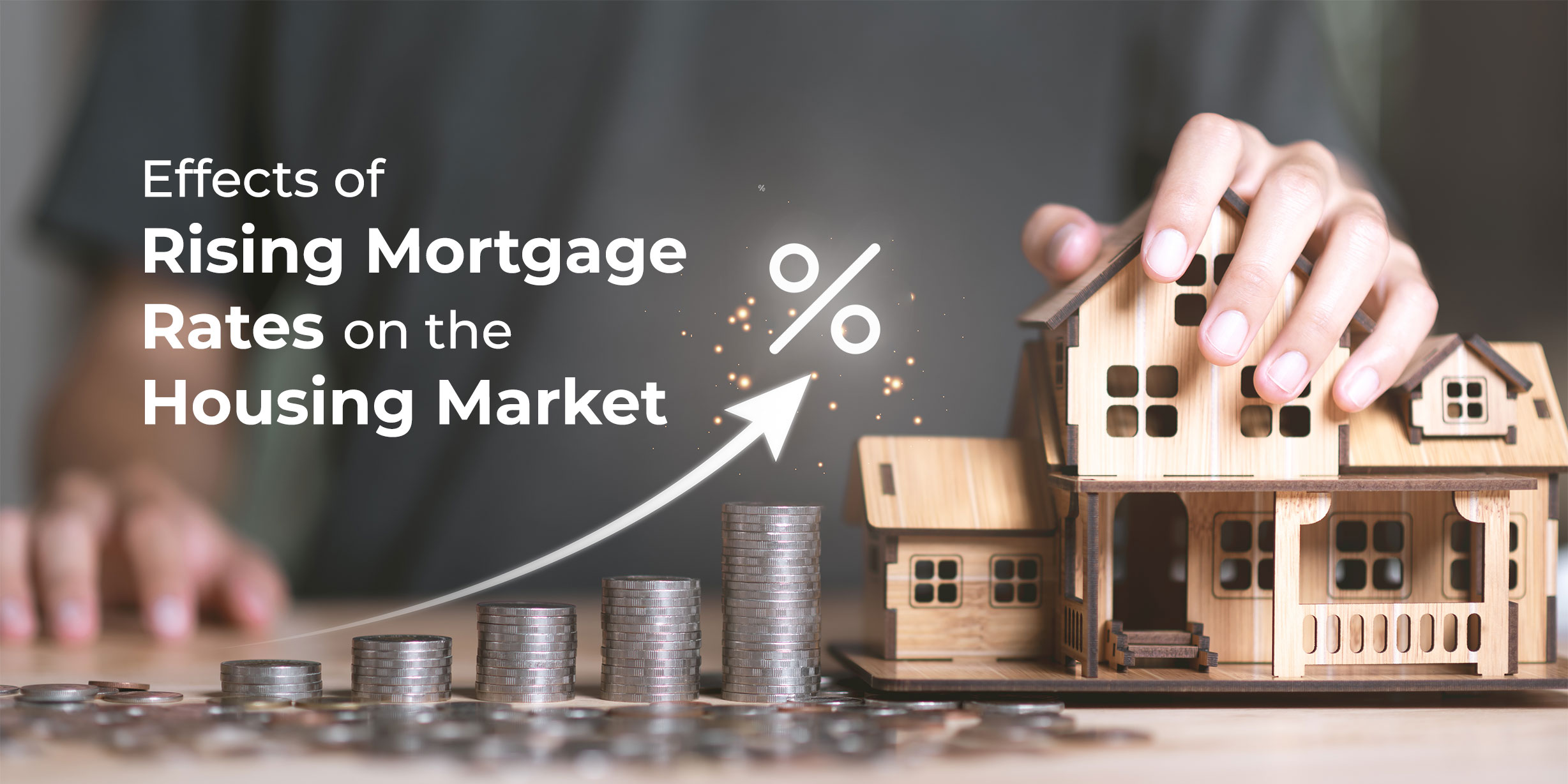Interest rates play a critical role in the housing market and directly impact your mortgage payments. Whether you’re a first-time homebuyer or someone looking to refinance, understanding how rising interest rates affect your mortgage is essential for making informed financial decisions. This article will break down the effects of rising interest rates on your mortgage payments and provide actionable steps you can take to manage these changes effectively.
What Are Interest Rates and Why Do They Matter?
Interest rates are essentially the cost of borrowing money from a lender. When you take out a mortgage loan, the lender charges you an additional percentage of the loan amount as interest. This interest is paid over time along with the principal amount (the actual money borrowed).
- Fixed-Rate Mortgages: These loans have an interest rate that remains constant throughout the term of the loan.
- Adjustable-Rate Mortgages (ARMs): These loans have variable interest rates that can change periodically based on market conditions.
The higher the interest rate, the more expensive it becomes to borrow money. For mortgages, even small increases in interest rates can significantly impact monthly payments and total costs over time.
How Rising Interest Rates Impact Mortgage Payments
Rising interest rates make borrowing more expensive, which directly affects your monthly mortgage payment. Here’s how:
1. Higher Monthly Payments
When interest rates rise, so does the portion of your monthly payment allocated to paying off interest. For example:
- On a $300,000 loan at 4% for 30 years, your monthly payment would be approximately $1,432.
- If the rate rises to 6%, your monthly payment jumps to about $1,799—a difference of $367 per month.
This increase can strain household budgets and make homeownership less affordable for many buyers.
2. Reduced Home Affordability
Higher interest rates mean that potential buyers qualify for smaller loans because lenders calculate affordability based on debt-to-income ratios. As a result:
- Buyers may need to settle for less expensive homes.
- Some buyers may delay purchasing altogether due to affordability concerns.
3. Impact on Refinancing
Refinancing becomes less attractive when rates rise because homeowners with existing low-rate mortgages are unlikely to benefit from switching to higher-rate loans.
4. Long-Term Costs
Over a 30-year term, even a small increase in interest rates can add tens of thousands of dollars in additional costs:
- At 4%, total repayment on a $300,000 loan would be around $515,609.
- At 6%, total repayment increases to approximately $647,514—an extra $131,905 over the life of the loan.

Why Are Interest Rates Rising?
Understanding why interest rates rise can help you anticipate changes and plan accordingly. Here are some key reasons:
- Inflation Control: Central banks like the Federal Reserve raise interest rates to combat inflation by reducing consumer spending and borrowing.
- Economic Growth: When economies grow too quickly, central banks may increase rates to prevent overheating.
- Market Conditions: Factors such as bond yields and investor demand also influence mortgage rate trends.
Who Is Most Affected by Rising Interest Rates?
While rising interest rates affect all borrowers, some groups feel the impact more acutely:
- First-Time Homebuyers:
- Often have limited budgets and may struggle with higher monthly payments.
- May need larger down payments or settle for smaller homes.
- Homeowners with Adjustable-Rate Mortgages (ARMs):
- Face increased payments when their adjustable period begins or resets.
- May find it challenging to refinance into fixed-rate loans if current rates are high.
- Investors:
- Higher borrowing costs reduce profit margins on rental properties or real estate investments.
- May delay purchases or seek alternative investment opportunities.
What Can You Do About Rising Interest Rates?
Although rising interest rates pose challenges, there are several strategies you can use to mitigate their impact:
1. Lock in a Fixed Rate
If you’re planning to buy a home or refinance soon:
- Consider locking in a fixed-rate mortgage while current rates are still manageable.
- Fixed-rate loans provide stability by keeping your monthly payments consistent over time.
2. Increase Your Down Payment
A larger down payment reduces the amount you need to borrow:
- Lower loan amounts mean smaller monthly payments.
- You’ll also save on total interest paid over time.
3. Improve Your Credit Score
Lenders offer better terms and lower rates to borrowers with strong credit scores:
- Pay bills on time and reduce outstanding debts.
- Check your credit report regularly for errors that could negatively affect your score.
4. Shop Around for Lenders
Different lenders offer varying terms and conditions:
- Compare multiple offers before committing to one lender.
- Look beyond just the advertised rate; consider fees and closing costs as well.
5. Refinance Strategically
If you’ve already locked into an ARM or high-interest loan:
- Monitor market trends for opportunities when refinancing makes sense.
- Be aware of closing costs associated with refinancing—they should not outweigh potential savings.
6. Budget Wisely
Prepare for higher expenses by adjusting your budget:
- Cut back on discretionary spending if necessary.
- Build an emergency fund specifically for unexpected increases in housing costs.
How Rising Rates Affect Sellers
Rising mortgage rates don’t just affect buyers—they also impact sellers:
- Fewer Qualified Buyers:
- Higher borrowing costs reduce buyer demand.
- Homes may take longer to sell or require price reductions.
- Lower Offers:
- Buyers facing higher monthly payments may negotiate aggressively for lower prices.
- Sellers might need flexibility during negotiations.
- Increased Competition Among Sellers:
- More homes stay on the market longer due to reduced demand.
- Sellers must differentiate their properties through pricing or upgrades.
The Broader Economic Impact
Rising mortgage rates have ripple effects beyond individual borrowers:
- Slower Housing Market Activity:
- Fewer transactions lead to reduced income for real estate agents and brokers.
- Builders may scale back construction projects due to declining demand.
- Rental Market Pressures:
- Potential buyers who can’t afford homes turn toward renting instead.
- Increased rental demand drives up rents in many areas.
- Consumer Spending Reductions:
- Higher housing costs leave less disposable income for other expenses like travel or dining out.
Conclusion
Rising interest rates significantly impact mortgage payments, making homeownership more expensive and affecting both buyers’ purchasing power and sellers’ ability to attract offers at desired prices. However, by understanding these dynamics and taking proactive steps—such as locking in fixed-rate loans or improving credit scores—you can navigate this challenging environment effectively while minimizing financial strain.

Leave a Reply